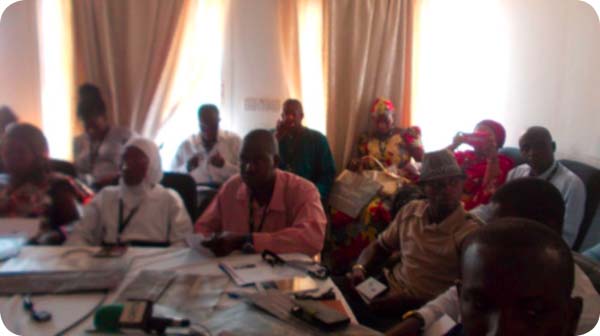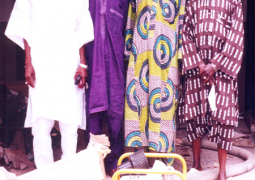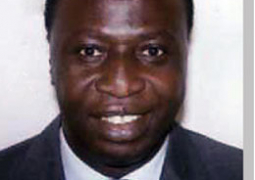
Samba Ceesay, Director of Health at the Ministry of Health and Social Welfare, in his opening remarks, thanked Dr Olga Mass and delegation from the Bahati Foundation in Spain for donating a routine ultrasound examination machine to Essau Major Health Centre, as well as providing expertise training to midwives and doctors.
The gesture has demonstrated their commitment and interest in the provision of quality health care to Gambians, especially women of reproductive age group, Ceesay said.
Mr Ceesay described the gesture as a noble venture which is in line with the vision and mission of the health sector toward the attainment of MDGs 4 and 5.
“Quality has become a major focus within the health care system, especially in areas of obstetrics and gynaecology,” he went on, adding that increasing the involvement of doctors and midwives in quality improvement activities is likely to expand in the coming years.
“In obstetrics and gynaecology, where radiography is no longer generally used, diagnostic ultrasound has provided an important platform in assessing foetal viability and age, evaluating foetal development, as well as uterine and placental abnormalities,” he said.
Doctors and midwives today have many extended roles, Ceesay continued, adding that in addition to meeting the needs of patients and serving as part of the health care team, they also play a key role in meeting the vision of the Ministry of Health and Social Welfare.
This allows them to contribute to quality improvement, Director Ceesay said.
The provision of routine ultrasound examination, especially in Essau Major Health Centre, would add value to the quality of reproductive health care, especially in detection of most gynaecological abnormalities, he further stated.
“The use of diagnostic ultrasound with proper training and experience could be a catalyst in eliminating unnecessary examinations and misdiagnosis.”
Mr Ceesay described the provision of equipment as vital, adding that the need for adequate education and training could not be overemphasised, especially in rural health institutions, where “diagnostic ultrasound services are often not available at all or only at an inadequate level.”
Gaining a more in-depth understanding of ultrasound scanning could provide midwives and doctors important insights about how the Ministry of Health and Social Welfare could optimize resources to improve the quality of reproductive health care, he further said.
Although access to quality reproductive health services had been enhanced significantly during the last decade, Mr Ceesay said “many pregnant women in rural areas still do not always seek appropriate care,” especially ultrasound scanning, partly due to unavailability of the services at the peripheral levels and/or distance and cost to access these services at urban health facilities.
As such, the greatest possibility of success comes from multifaceted interventions, including ultrasound scanning, that address quality issues throughout the system and supported within a progressive policy environment, he went on.
Achieving high and equitable coverage of interventions for reproductive health care is essential, and saving lives also depends crucially on the quality of care, according to the health director.
Mr Ceesay challenged the trainees to take the training course “very seriously” and to embed quality care assurance in reproductive health issues, which is essential to achieving health and survival goals for women, adolescents, newborns and children.
He assured the donors that the equipment would be used for the intended purpose, and also counted on the organisation’s further collaboration.
Ceesay commended Dr Abdou Jammeh, Regional Director for Health Services in North Bank West, Abdoul Bangura and Dr Olga Mass, together with the Bahati representatives, for their “brilliant foresight”.
Read Other Articles In Article (Archive)
The Gambia’s 40 days of terror!
Jan 23, 2017, 10:36 AM
ACPHR will continue to engage African countries on human rights issues’
Oct 30, 2013, 10:30 AM



